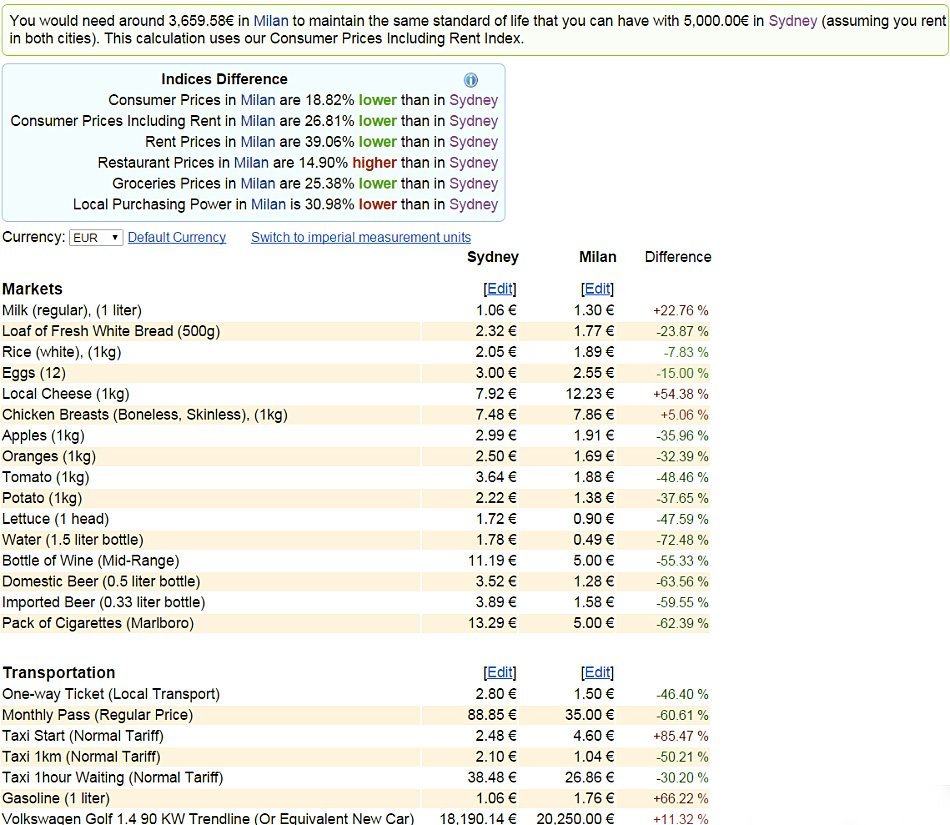How To Leave Everything Behind And Start A New Life! In this article, I’ll explain my experience and how you can move abroad and start a new life.

I want to leave everything behind and change my life! How many times have you heard or said this sentence? Probably very often. People usually wait for the “right conditions and the courage” to do it.
The ideal conditions don’t come down from the sky, and courage is not the most important thing if you decide to move abroad. Courage alone is useless when you must pay rent and bills in a foreign country. You’ll need more than that to stay in your new destination despite the challenges, and you’ll also need money. Good planning is essential.
Living abroad is not like going on a holiday. There are new challenges and difficulties. The new language, the different culture, the distance from home, the climate, the food, and a thousand other things can easily overwhelm you if you don’t have the right motivations.
If you decide to move abroad, you need the right motivation and very good planning
I did: I left everything behind and moved to Asia. I moved from a small village of 1,500 people to Kaohsiung, the second-largest city in Taiwan and then China. That’s why I want to share some of the things I learned from this experience, hoping they will be useful if you consider moving abroad.
I want to change my life: where should I move to improve my life?

There is no perfect place to move to, and everyone has to consider their reasons for wanting to change their life. I believe choosing a place that will allow you to improve your quality of life is important. Some of the most important factors you should consider are, in my opinion, these:
- Cost of living: the way I see it, there is no point in moving to Sydney and making $5,000 per month if I pay $4000 in rent and work 40 hours a week. I’d rather simplify my life and live with less than work more to earn more money (here is the list of the cheapest countries to live in). Alternatively, you could think about becoming a digital nomad (here is an example of how to do it) and earn money working online. Remember that you should think about it BEFORE moving abroad. In most cases, it takes years to become successful.
- Good healthcare facilities are an important aspect to consider when living abroad. In addition, it is important to have good travel insurance.
- Good quality of life: if, just like me, you are not very attracted by the idea of working in an office for 40 hours a week but at the same time you are not interested in moving to a hut in the middle of a jungle, look for a country where you will be able to find a compromise, i.e. low cost of living but also the possibility of finding the comforts you need.
- Very low crime rate: Choosing a country that can guarantee minimum personal safety is important. Something bad and unexpected can happen anywhere, but moving to a low-crime country will at least lower the chances of something bad happening. Compared to most Italians who expatriate and aim for tropical paradises in the Caribbean or Latin America, I preferred the tropics on the other side of the world: Taiwan and then China. Asia is generally safe, and for me, that is a key aspect.
- Ease of learning the language: the difficulty of learning the language of the country you are moving to is an important factor to consider, though not a fundamental, aspect. I have known people who, after spending 10 years in London, didn’t speak any English and others who, after 6 months in China, spoke Chinese quite fluently. What matters is the motivation. For many, however, living where the language is difficult to learn can be problematic, so that might be an important aspect to consider.
What are the challenges of living abroad?

The aspects I have mentioned are some of the ones to consider when choosing the country to move to, but remember that living abroad will also have its (many) challenges. Saying, “I Want To Leave Everything Behind And Start A New Life” is not enough. If you have unresolved issues in your old life, you will drag them along with you in your new life. Choices made in a hurry to run from serious issues will prove wrong in the long run.
Here are some difficulties you may encounter while living abroad:
- Getting homesick: it doesn’t matter whether you live in a country nearby or far away. Sooner or later, you will miss your former home, family, and friends. It’s just a matter of time, and it’s perfectly normal. Even those who run away because they hate their lives will sooner or later face these issues. The important thing is to focus on the things you have, not the things you don’t have. When it happens, I find it helpful to spend some time alone in a place that vaguely reminds me of home, whether a coffee shop, a restaurant, or a beach. I recommend finding your place and spending time there whenever you feel homesick. That said, some people get over this stage pretty quickly. Others, however, never do and eventually have to return home (or continue living abroad but do so with a very negative attitude). Everyone is different, so I will never get tired of saying that having the right motivation is crucial to living abroad for a long time. Remember that even if you move because your country “sucks”, there is no perfect place, and sooner or later, you’ll find out that also your new destination has serious issues.
- Cultural shock: this is a problem everyone who moves abroad has to deal with. One thing people don’t often consider, though, is that if you live abroad for many years, you will face the same problem when returning home!
- Communication difficulties: a big problem when moving abroad is the language. Especially in places like Asia, it can be frustrating not to be able to communicate even the simplest things. But communication issues go beyond the inability to express even basic concepts in a language you don’t understand. Language is a medium, but even if you can use it correctly, people born and raised in a different context than yours think differently. It will happen more than once that you understand a joke but do not grasp its meaning, and you see all your friends laugh while you wonder what’s so funny. But the opposite will also happen: you will make jokes that no one understands and quote songs or movies that no one has ever heard of. These are the situations that I have found most difficult to deal with in the long run because they will make you realize that few people understand you and your culture. That said, remember that it’s only a matter of time; sooner or later, you will get through even these challenges if you don’t give up.
- Getting used to the weather: the weather is a personal thing. For some, it’s extremely important. For others, it doesn’t matter. I have friends who have moved abroad and left after a short time precisely because of the weather. Don’t underestimate it because, in the long run, in my experience, it’s one of the main factors that will contribute to your quality of life, making you want to stay or leave. This was precisely one of the deciding factors for me to move from Taiwan to Yunnan, China. Another important factor is the levels of pollution. Here you can find a list of the most polluted cities in the world (where I live, pollution is about the same levels as in my hometown).
- Difficulties related to Visas and residence permits: for those moving from Europe to other places, this can be a new problem you have never faced. Despite the several issues in today’s Europe, the old continent has one huge advantage: you can move and work anywhere you want without much trouble. In the rest of the world, things are not so simple, and I recommend that you do a lot of research before deciding where to live and work abroad.
These are just some things you must consider before moving, but they are a good start.
What is the best country in the world to move to?

Ultimately, there is no perfect place. It depends on what you are looking for and how willing you are to adapt. Everyone has to find their own “America.” Your destination may be the worst place in the world for some people, but the perfect place for you if you find what you want.
I have learned that finding the right country to move to is the hardest part. Once you make the choice, things get easier.
An important tip: once you have chosen your destination, go there first on holiday and try to live like a local. Moving to a new place without ever setting foot there is like buying an expensive suit without first trying it on. It can be perfect, or you will risk wasting money and time; at the end of the day, money is your time.
How to choose your destination

You can find several useful tools on the Internet to research where to move. Usually, every country has an official government website with every country listed and the specific risks in real-time. You can also look for expat groups on Facebook in the city where you plan to live.
A very interesting website for estimating the cost of living with real-time data is Numbeo. This website contains a huge database where anyone can add up-to-date prices for everyday products, rent, gasoline, clothes, etc. You can also check other things such as crime rate (I would avoid moving to South Sudan), health care quality and cost of living.
A very interesting option is the possibility of comparing two cities. Here, for example, you can compare the cost of living in Sydney and Milan:

Of course, quality of life is not the only deciding factor, nor is the cost of living; otherwise, you would have to move to countries such as Afghanistan or Iran. A key aspect when comparing different options is local purchasing power.
Purchasing power is the value of a currency expressed in terms of the number of goods or services that one unit of money can buy.
Also, remember that if you decide to move to countries where the Internet is censored, such as China or the United Arab Emirates, you will need a very good VPN to continue accessing Facebook, Instagram, and all your other social networks.
How To Leave Everything Behind And Start A New Life: Final Thoughts

Moving abroad is a life-changing experience, but it can be much easier than you might think. The key is good preparation.
Many people have asked me where they can move without having any money. For me, those who ask these questions are starting on the wrong foot (unless you are fleeing a country at war or other unpredictable and catastrophic situations). You’ll need initial capital. You will have to pay your first rent and deal with other unforeseen expenses that may arise at any time. So you’ll need money.

Gone are the days of getting to Ellis Island in New York with a cardboard suitcase. Today, there are all the tools to make a wise choice and avoid throwing away your resources unnecessarily.
The secret to living a successful life abroad is to remember the reasons why you made this choice in the first place and focus on its positive aspects. There are bound to be difficult times, and homesickness will sometimes be hard to deal with, but living abroad for a while is the best way, in my opinion, to live your life to the fullest.



What are the three ways you financed your World Trip?
Photography 🙂
Thank you dude for the tips! Really helpful, I wish you a great life ahead.
Thanks man. Appreciated 🙂